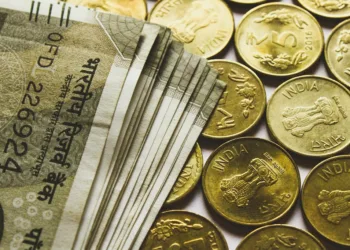Analysing a contemporary pandemic from ethical and moral angles raises disturbing questions
By Dr Aaloc Srivastav
Amidst a crisis, one is mostly concerned about one’s own well-being and tends to ignore the positive and normative aspects of behaviour. Heredity and environment both being crucial, one must weigh the pros and cons traceable to each during the SARS-CoV-2 pandemic. For clarity, it would be worthwhile to also recall the Spanish flu crisis.
At the time of the Spanish flu, the world went through a period of acute trials and tribulations as support systems were at nascent stages. As we are in more advanced times, sense and the essence of ethics and morality should be at a higher level.
Prior to touching on the issue at length, one must not forget that: (a) Fresh thinking among biologists indicates viruses have migrated from animals to humans on multiple occasions. (b) Since the wedding and festival season is here, universal inoculation has to be the central focus. (c) So one must go back to conforming to corona-appropriate behaviour. And (d) major states must ensure swift case detection, set up new helplines and stock adequate kits and medicines.
Conceptual nuances
Looking at restrictions and protocols, could we say that acute anxiety relating to “Corona Aunty” or “Covid Uncle” has already become the new opiate of the masses?
At a time when more than four lakh people have died, a spike in greed may lead to compromising moral or ethical standards.
Forced e-learning, neglecting physical exercise, by students is showing negative effects. Apart from the need to buy expensive smartphones, continued use of electronic devices may aggravate anxiety, and spawn personality and medical challenges.
Hygiene
There is no harm in taking extra care regarding personal hygiene. But a question may arise – if a soap can work, why do we need sanitiser? If a hankie or gamcha can come to our aid, do we need a factory-made mask? As such, breathing with a mask is not easy. If home or PHC isolation by taking ordinary headache and fever medicines can work, is there a need for expensive beds, oxygen cylinders or ventilators?
If the Indian system of medicine shows positive results, why not try it?
Also, forced e-learning, while neglecting physical exercise, by students is showing negative effects. Apart from the need to buy expensive smartphones, continued use of electronic devices may aggravate anxiety, and bring on fresh personality and medical challenges, such as ache in the eyes or the need for spectacles early in life.

Vaccines have not had the desired impact. Rather, enhanced cases are noticed subsequent to two doses. A cocktail of two, once considered risky, has been looked at afresh. In respect of two Indian vaccines, a cocktail has proved beneficial from clinical and moral angles. But one may say mostly vaccine researchers/doctors did not have prior experience.
Moral responsibility
However, taking moral responsibility for spoiling a case or leading to death may have to be built in the mind of doctors. It is not that doctors and para medics have not died or suffered, but it needs to be felt that unbearable suffering is faced by relatives of the dead. If many of them were immorally mistreated by chemists, traffic and hospital staff, latter must face stern action.
If home or PHC isolation with ordinary headache and fever medication can work, is there a need for expensive beds, oxygen cylinders or ventilators? If the Indian system of medicine shows positive results, why not try it?
Side by side, one should salute efforts made by many doctors and nurses and those spearheading the Ministry of Health, AIIMS, ICMR, NITI Aayog, etc. especially during the second wave when mental strength of attendants had hit an all-time low.
Morality in reporting
The malaise begins from the reporting stage. It was evident in the tendency of creating confusion between normal and Covid-induced deaths.
As to statistics, the Centre For Global Development, US, after analysing data from March 2020 to June 2021 reported that India’s corona death toll was up to 10 times higher than the reported figure of 4,15,000.

While genuine doubts have been cast on the country’s death toll, overstretched health services, lack of proper rest, illness and deaths within family, too, contribute. Many states also revised their corona mortality figures, thereby adding thousands of “backlog” deaths. Bihar divulged 2,51,000 “excess” deaths for the period March 2020 to May 2021. It was 48.6 times the official data of 5,163.
Statistical deviation was also reported by a daily as regards Kerala, Tamil Nadu, Andhra Pradesh, Maharashtra, Gujarat, and Uttar Pradesh, grouped separately. These reflected a wide range of undercounting from as little as 0.42 times in Kerala to 43 times in UP.

Globally also, as per WHO, Covid-19 deaths may be as much as two to three times the official figures of 44.8 lakh.
More often, disputed figures lead to unrealistic projection on medical and transport infrastructures. The National Capital Region (NCR) has become a happy hunting ground for fake and forged corona-negative certificates. While insisting that others produce these, senior public servants do not possess the same themselves. The so-called TV experts too encourage undesirable beliefs and practices. Also, VIPs not only get tested out of turn, but their “negative” results too get divulged fast. In respect of fines, too, police follow discriminating parameters.
People get misguided post-Covid too. Rational and moral response patterns are sidelined. What is needed is concerted efforts to work honestly for reducing the Covid onslaught. By spreading further the message of ‘protecting you and family at home’, we can await further developments in vaccines. It may be an effective, ethically and morally correct approach.
(The author is former Chief Secretary, Sikkim.)




